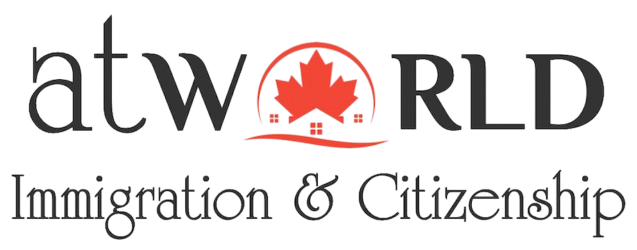In a transformative move set to change the lives of countless families worldwide, the Super Visa program of Canada eases the insurance requirements.
Immigration, Refugees, and Citizenship Canada (IRCC) has implemented a significant update to the Super Visa’s insurance requirement effective January 28, 2025.

This pivotal policy shift allows super visa applicants to purchase health insurance from international providers, a move that not only democratizes access to this visa but also ushers in a new era of inclusivity in Canada’s immigration framework.
Table of Contents
- What is the Super Visa?
- The Groundbreaking Change in Health Insurance Requirements
- Ensuring Compliance and Reliability
- Benefits of the New Policy
- Super Visa Eligibility
- A Step Towards Family Unity
What is the Super Visa?
The Super Visa stands as a beacon of hope for families, designed specifically for parents and grandparents of Canadian citizens or permanent residents.
This visa enables them to visit and spend significant time with their loved ones in Canada, offering a stay of up to five years per visit, extendable further if needed.
Unlike regular visitor visas, which limit stays to six months, the Super Visa is valid for multiple entries over a span of ten years, fostering long-term family bonds without the constant need for visa renewals.
This has been pivotal in maintaining familial connections across international borders, providing comfort, and strengthening cultural ties.
This authorization ensures that the insurance meets Canadian standards for accident and sickness coverage, securing the health and well-being of visitors during their stay.
The Groundbreaking Change in Health Insurance Requirements
As of the pivotal date of January 28, 2025, IRCC has opened its doors wider by accepting health insurance policies from foreign providers, provided these companies are authorized by the Office of the Superintendent of Financial Institutions (OFSI).
Ensuring Compliance and Reliability
Authorization by OSFI:
All foreign insurers must be on OSFI’s list of federally regulated financial institutions.
This guarantees that the insurance provider is under the vigilant eye of Canadian regulatory standards, ensuring reliability and accountability.
Issuance in Canadian Operations:
The policy must be issued as part of the insurer’s operations in Canada, aligning with local legal frameworks despite the insurer’s foreign origins.
This integration ensures that the policy is enforceable and compliant within Canada.
Verification Process:
Prospective visa applicants are encouraged to check the OSFI website to confirm their chosen insurance provider’s eligibility, ensuring a smooth application process.
Previously, securing a Super Visa involved the mandatory purchase of health insurance from Canadian providers only, which could be both costly and complex for international families.
This requirement was stringent because Super Visa holders do not qualify for public health care in Canada, thus necessitating private coverage.
Benefits of the New Policy
This change provides various benefits as below:
Economic Relief:
By allowing international insurance, families can now potentially find more affordable options, reducing the financial burden and making the Super Visa more accessible.
Increased Options:
With a broader selection of insurance providers, applicants have the flexibility to choose plans that better suit their health needs or financial situations.
Simplified Process:
The process of obtaining and maintaining insurance coverage has become less daunting. Visa holders can manage renewals from their home countries, ensuring continuous coverage without the need to navigate Canadian insurance markets.
Global Inclusivity:
This policy reflects Canada’s commitment to inclusivity, recognizing the diverse backgrounds of its permanent residents and citizens’ families, promoting a more global approach to family support.
Super Visa Eligibility
To understand who can apply for this transformative visa:
Applicants:
Must be parents or grandparents of Canadian citizens or permanent residents.
Host Requirements:
- Must be the child or grandchild of the applicant.
- Must be a Canadian citizen, permanent resident, or registered under the Indian Act.
- Should be at least 18 years old.
- Need to meet the Low Income Cut-Off (LICO) income thresholds to support the applicant.
- Must provide a written promise of financial support.
Application Prerequisites:
- Applications must be made from outside Canada.
- Visa processing must occur at a visa office outside Canada.
- Applicants must be admissible to Canada, including passing a medical exam.
- Must have valid medical insurance for at least one year from the date of entry into Canada.
This adjustment in policy is more than just an administrative change; it’s a profound statement on Canada’s approach to immigration and family values.
By easing the Super Visa insurance requirements, Canada is sending a clear message about its commitment to family reunification and the well-being of its extended community, whether they reside within its borders or abroad.
A Step Towards Family Unity
This policy change is not just about reducing paperwork or costs; it’s about celebrating family, embracing diversity, and acknowledging the global nature of modern families.
As Canada continues to evolve its immigration policies, this adjustment to the Super Visa insurance requirements is a testament to its ongoing commitment to humanity, unity, and the joy of family reunification.
Now, more than ever, families around the world can plan their reunions with less worry about the logistics of health insurance, looking forward instead to the cherished moments together in Canada.
This policy shift might well be the beginning of a broader, more welcoming approach to immigration in Canada, setting a precedent for other nations to follow in fostering global family connections.





Post a Comment